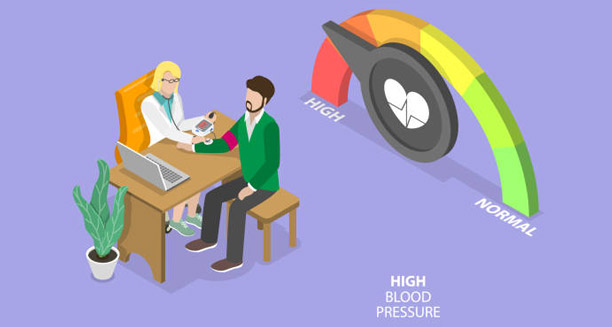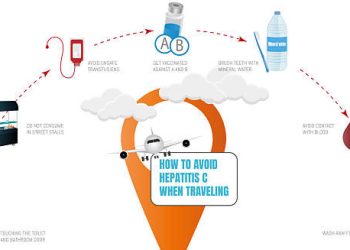Symptoms of high blood pressure are often subtle or completely absent in the early stages, which is why hypertension is frequently referred to as the “silent killer.”
Because symptoms of high blood pressure are not always clear, many people live with dangerously high levels for years without realising it. This lack of obvious warning signs can delay both diagnosis and treatment. In the meantime, the condition quietly damages major organs like the heart, kidneys, eyes, and brain.
Most of the time, high blood pressure doesn’t cause pain or discomfort. Still, it gradually harms the body’s systems. Often, the first noticeable sign only shows up when something serious happens—such as a heart attack, stroke, or kidney failure. That’s why regular checks are so important. This is especially true for people over 40 or those with extra risk factors like being overweight, having diabetes, not exercising, or having a family history of high blood pressure.
Early Warning Signs of High Blood Pressure
Some people with moderate or severe hypertension may have mild symptoms. These signs are not specific but can suggest that something is wrong:
- Headaches, especially at the back of the head, often worse in the morning
- Dizziness or feeling faint or unsteady
- Blurry or double vision, which might mean the eyes’ blood vessels are affected
- Shortness of breath after simple tasks or while lying down
- A pounding or fluttering feeling in the chest (palpitations)
- Nosebleeds, though usually only in cases of very high pressure
- Tiredness or confusion, mostly in older people who are more sensitive to changes in blood flow
However, these symptoms can also happen with many other health issues. So, anyone who experiences them should check their blood pressure with a doctor or nurse.
Symptoms During a Hypertensive Crisis
When blood pressure gets extremely high—above 180/120 mmHg—it can lead to a medical emergency known as a hypertensive crisis. This needs urgent care. The signs are often strong and clear:
- Severe chest pain or tightness, which could signal a heart attack
- Trouble breathing, sometimes with frothy spit, possibly caused by fluid in the lungs
- Intense, throbbing headaches
- Loss of vision or blurry vision due to eye damage
- Nausea or vomiting, which might show brain pressure
- Confusion, shaking, or even seizures, especially in children or people with brain conditions
- Passing out or not responding, which may happen if the brain doesn’t get enough blood
These symptoms of high blood pressure should never be ignored. Quick medical help is crucial.
Symptoms of High Blood Pressure in Different Age Groups
The symptoms of high blood pressure vary with age and other health conditions.
In young adults and teens, high blood pressure often shows no signs. If symptoms do appear, they are usually blamed on stress or tiredness. This delay in diagnosis can be risky because damage may begin early.
Older adults are more likely to feel dizzy, have memory problems, or notice changes in their vision. These signs are often seen as part of ageing, but they can point to undetected high blood pressure.
Children rarely develop hypertension. However, the numbers are growing because of increased obesity. When it does happen, signs might include headaches, feeling tired, or acting differently. Regular check-ups are important for spotting this early.
When Other Conditions Cause the Symptoms
Sometimes, symptoms of high blood pressure come from the health problems that cause it. These can include:
- Kidney disease: This may cause swelling in the legs and ankles, changes in urine, or back pain
- Thyroid issues: People may gain or lose weight, feel anxious, or struggle with hot or cold temperatures
- Sleep apnoea: Common signs are loud snoring, being sleepy during the day, or having headaches in the morning
In these cases, treating the main condition often helps lower blood pressure and reduce symptoms.
How Long-Term Effects Can Become Symptoms
Some people never feel anything until major health problems appear. These effects are not early symptoms, but they do show how dangerous untreated high blood pressure can be. These include:
- Heart failure, irregular heartbeat, or chest pain
- Stroke, caused by bleeding or blocked blood vessels in the brain
- Ongoing kidney problems, sometimes needing dialysis
- Eye disease like hypertensive retinopathy, which can lead to blindness
- Memory loss or confusion, including types of dementia
This shows how symptoms of high blood pressure often overlap with its long-term consequences. Regular checks can help avoid these serious problems.
Symptoms of High Blood Pressure Often Go Unnoticed
One of the main reasons high blood pressure is missed is because people ignore the early signs. Headaches, dizziness, and tiredness are often blamed on stress, poor sleep, or general fatigue. This leads to missed chances for early diagnosis.
Community education, regular checks at clinics or pharmacies, and GP visits help spot the problem earlier. These actions make a big difference.
Why Awareness of Symptoms of High Blood Pressure Matters
Teaching people about the possible signs—no matter how minor—is essential. This education should also reach friends, relatives, and carers. They might notice small changes in mood, energy, or thinking that could suggest high blood pressure.
Final Thoughts
The symptoms of high blood pressure are usually unclear or confused with other problems. That’s why hypertension continues to be missed so often. But knowing what to look out for—and checking blood pressure regularly—can prevent long-term damage and save lives. Even if you feel fine, high blood pressure can still be hurting your body. Routine checks are a must for people of every age.


